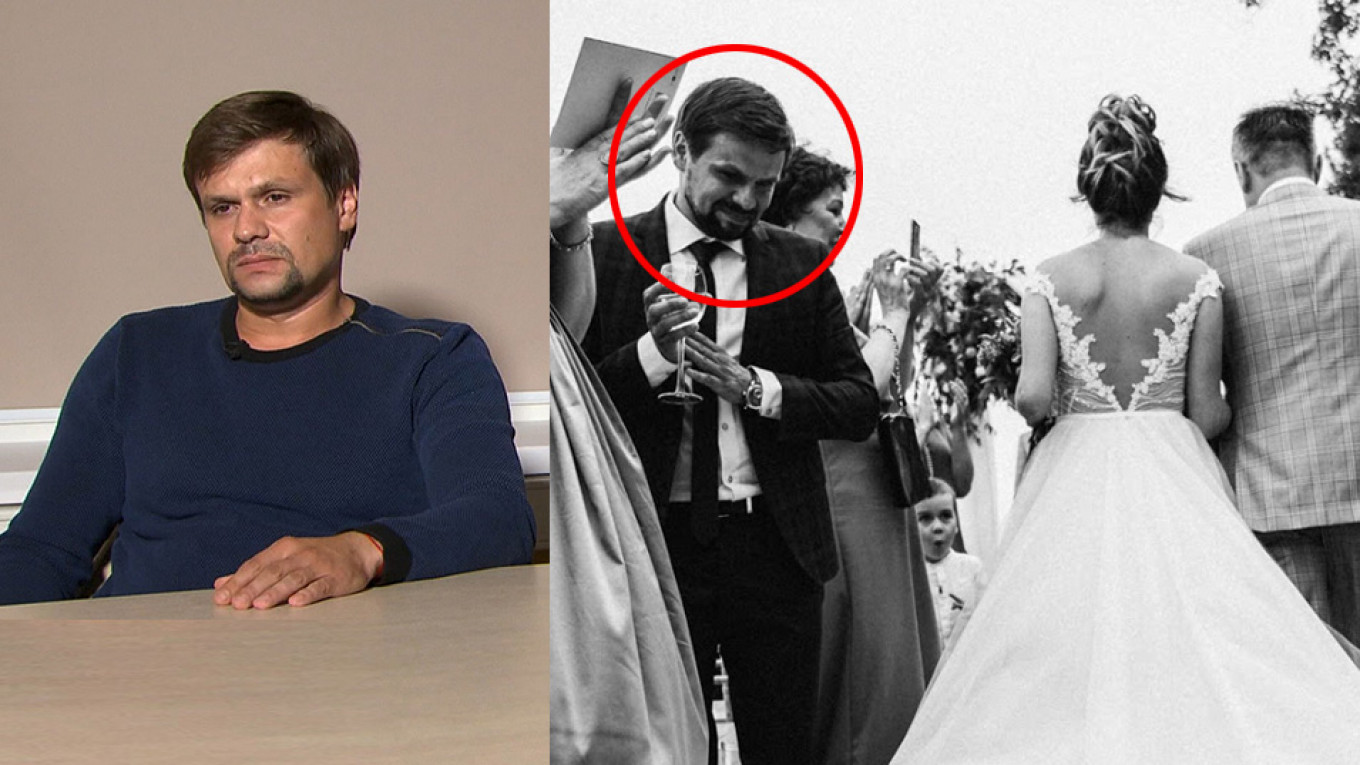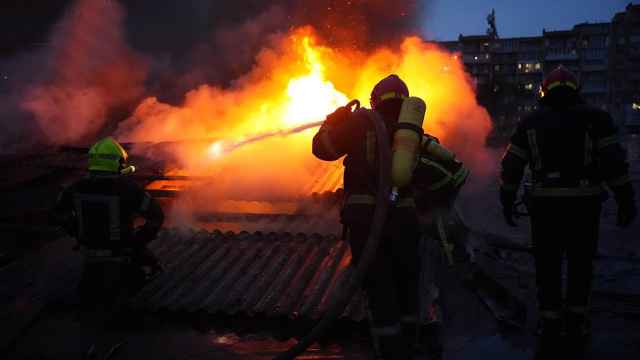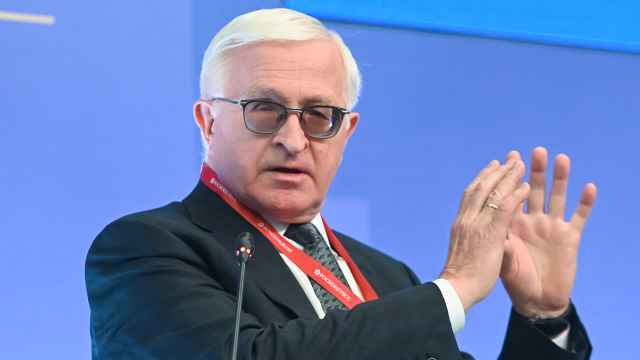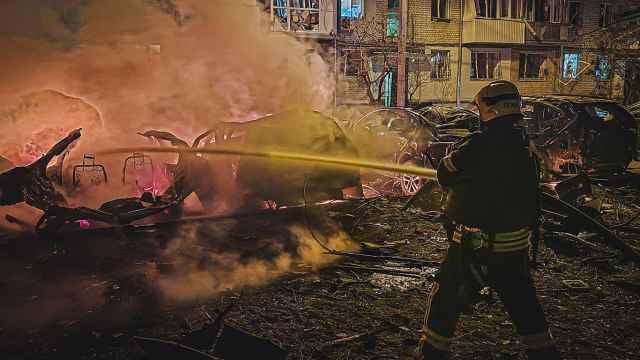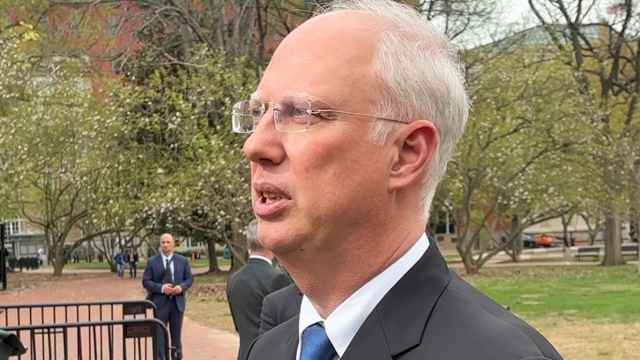A man Britain suspects of poisoning former Russian spy Sergei Skripal has been filmed attending the wedding of the daughter of an alleged top military intelligence unit commander, according to media reports.
British prosecutors last year accused two Russians they said were operating under aliases of trying to murder GRU defector Skripal and his daughter with a military-grade nerve agent. One of the suspects, Anatoly Chepiga, posed for photographs in 2017 with GRU unit commander Major General Andrei Averyanov at Averyanov’s daughter’s wedding six months before the incident, The New York Times reported last week.
Chepiga, using the alias Ruslan Boshirov, and the second suspect, Alexander Mishkin, have always insisted they were innocent tourists visiting the city of Salisbury to see its cathedral at the time of the Skripals’ poisoning.
The Bellingcat investigative news site published the photographs and videos Monday showing Chepiga at the wedding in July 2017. The New York Times did not publish the footage last week, but it identified Averyanov as the commander of GRU Unit 29155, which it said oversaw a campaign to destabilize Moldova, an arms smuggler’s assassination attempt in Bulgaria, a thwarted coup in Montenegro and the Skripal poisoning.
“These newly discovered photographs and videos of Chepiga,” Bellingcat said, “provide additional incontrovertible proof of his identity as a decorated GRU officer.”
Chepiga attended the wedding under the pseudonym “Alexei” Chepiga while his family used their real names and sat at the same table as Averyanov, Bellingcat said.
Both Chepiga and Averyanov are recipients of Russia’s highest state award, the Hero of Russia, Bellingcat reported.
Bellingcat located the footage from open sources together with the Russian-language service of the U.S.-funded RFE/RL news website.
A Message from The Moscow Times:
Dear readers,
We are facing unprecedented challenges. Russia's Prosecutor General's Office has designated The Moscow Times as an "undesirable" organization, criminalizing our work and putting our staff at risk of prosecution. This follows our earlier unjust labeling as a "foreign agent."
These actions are direct attempts to silence independent journalism in Russia. The authorities claim our work "discredits the decisions of the Russian leadership." We see things differently: we strive to provide accurate, unbiased reporting on Russia.
We, the journalists of The Moscow Times, refuse to be silenced. But to continue our work, we need your help.
Your support, no matter how small, makes a world of difference. If you can, please support us monthly starting from just $2. It's quick to set up, and every contribution makes a significant impact.
By supporting The Moscow Times, you're defending open, independent journalism in the face of repression. Thank you for standing with us.
Remind me later.


